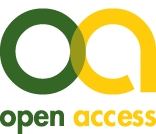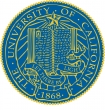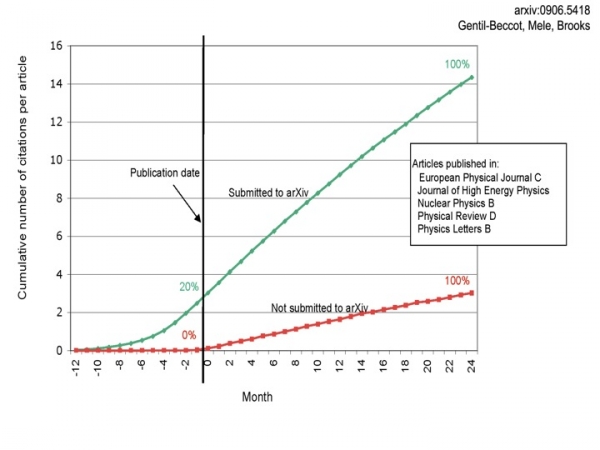Thursday, September 12. 2013
The Green Road To OA -- And Then On To Fair-Gold
 Anonymous: "By the time we reach 100% Green OA, there will be few journals left to cancel and it will be far too late to start charging authors a "fair gold" price for something they feel they have been getting for free up till then."
Anonymous: "By the time we reach 100% Green OA, there will be few journals left to cancel and it will be far too late to start charging authors a "fair gold" price for something they feel they have been getting for free up till then." Until Green OA is at or near 100%, a journal cannot be cancelled because its contents cannot be accessed any other way. And Green OA grows anarchically, not journal by journal but article by article.
So subscriptions will support publication for as long as they are sustainable; when global Green OA is at or near 100%, and at or near the point of making subscriptions unsustainable, journals will be forced to cut costs by phasing out all inessential products and services. That means print edition, online edition, access-provision and archiving. Nothing will be left for them to do except manage the peer review and certify the outcome with their journal name. All access provision and archiving will be offloaded onto the distributed global network of Green OA repositories.
And authors will not have to pay the (Fair Gold) cost of the journal's peer review service out of pocket: Their institutions will pay for it out of a fraction of their annual windfall savings -- from their subscription cancellations.
Harnad, S. (2007) The Green Road to Open Access: A Leveraged Transition. In: Anna Gacs. The Culture of Periodicals from the Perspective of the Electronic Age. L'Harmattan. 99-106.
Harnad, S. (2010) No-Fault Peer Review Charges: The Price of Selectivity Need Not Be Access Denied or Delayed. D-Lib Magazine 16 (7/8).
Tuesday, September 10. 2013
Some Reflection from Wellcome Would be Welcome
 It's time for the Wellcome Trust to think more deeply about its endlessly repeated mantra that the "cost of publication is part of the cost of funding research."
It's time for the Wellcome Trust to think more deeply about its endlessly repeated mantra that the "cost of publication is part of the cost of funding research." The statement is true enough, but profoundly incomplete: As a private foundation, Wellcome only funds researchers' research. It does not have to fund their institutional journal subscriptions, which are currently paying the costs of publication for all non-OA research. And without access to those subscription journals, researchers would lose access to everything that is not yet Open Access (OA) -- which means access to most of currently published research worldwide. Moreover, if those subscriptions stopped being paid, no one would be paying the costs of publication.
In the UK, it is the tax-payer who pays the costs of publication (which is "part of the cost of funding research"), by paying the cost of journal access via institutional subscriptions. It is fine to wish that to be otherwise, but it cannot just be wished away, and Wellcome has never had to worry about paying for it.
The Wellcome slogan and solution -- the "cost of publication is part of the cost of funding research," so pay pre-emptively for Gold OA -- works well enough for Wellcome, and as a wish list. But it is not a formula for getting us all from here (c. 30% OA, mostly Green) to there (100% OA). It does not scale up from Wellcome to the UK, let alone to the rest of the world.
What scales up is mandating Green OA. Once Green OA reaches 100% globally, journals can be cancelled, forcing them to downsize and convert to Fair Gold, single-paid at an affordable, sustainable price, instead of double-paid pre-emptively at today's arbitrarily inflated Fools-Gold price.
Hence it is exceedingly bad advice on Wellcome's part, to urge the UK, that because the "cost of publication is part of the cost of funding research," the UK should double-pay (subscriptions + Gold OA) for what Wellcome itself only needs to single-pay. (And this is without even getting into the sticky question of overpricing and double-dipping.)
Wellcome took a bold and pioneering step in 2004 in mandating OA.
But in since cleaving unreflectively and unresponsively to pre-emptive payment for Gold OA as the preferred means of providing OA -- because Wellcome does not have to pay for subscriptions -- the net effect of the Wellcome pioneering intiative is now beginning to turn negative rather than positive.
I hope the BIS Report will encourage Wellcome to re-think the rigid route that it has been promoting for a decade, culminating in the Finch Fiasco.
Fixing Finch
The 2013 BIS Report (I, II) now recommends mandating;
1. that the Green OA deposit in the institutional repository should be immediate rather than delayed, whether or not Open Access to the deposit is embargoed by the publisher (during any OA embargo the repository's eprint-request Button can then enable the author to fulfill individual user eprint requests automatically with one click each if deposit was immediate),The BIS recommendations now perfectly complement HEFCE's recommendation (as well as those of BOAI-10: 1.6) to make immediate-deposit a condition for eligibility for REF 2020 (thereby effectively recruiting universities to serve as the mechanism for ensuring timely compliance, following the highly successful mandate model of the University of Liège). This effectively fixes the flaws in the Finch Report. The UK's OA policy will now also be compatible with OA policies in the EU, the US and the rest of the world, doing them all one better with its explicit call for immediate institutional deposit and effective compliance monitoring.
2. that an effective mechanism for monitoring and ensuring timely mandate compliance should be implemented, and
3. that Gold OA publishing should either no longer be preferred or hybrid Gold should no longer be funded.
UK BIS Committee 2013 Report on Open Access
 Business, Innovation and Skills Committee Select Committee
Business, Innovation and Skills Committee Select Committee Announcement No.21
Monday 9 September 2013
NEW REPORT: Open Access: achieving a functional market
Under strict embargo until 00.01 BST on Tuesday 10 September
Government mistaken in focusing on Gold as route to full open access, says Committee
The Government’s commitment to increasing access to published research findings, and its desire to achieve full open access, are welcome, says the Business, Innovation and Skills Committee in a Report published today. However, whilst Gold open access is a desirable ultimate goal, focusing on it during the transition to a fully open access world is a mistake, says the Report.
The Report calls on the Government and RCUK to reconsider their preference for Gold open access during the five year transition period, and give due regard to the evidence of the vital role that Green open access and repositories have to play as the UK moves towards full open access.
The Report recommends that:
• the Government should take an active role in promoting standardisation and compliance across subject and institutional repositories [paragraph 25].
• RCUK should reinstate and strengthen the immediate deposit mandate in its original policy and improve the monitoring and enforcement of mandated deposit [paragraph 31].
• the Government and RCUK should revise their policies to place an upper limit of 6 month embargoes on STEM subject research and up to 12 month embargoes for HASS subject research [paragraph 50].
• the Government should mitigate against the impact on universities of paying Article Processing Charges out of their own reserves [paragraph 64].
• if the preference for Gold is maintained, the Government and RCUK should amend their policies so that APCs are only paid to publishers of pure Gold rather than hybrid journals to eliminate the risk of double-dipping [paragraph 77].
Wednesday, September 4. 2013
Green OA Repository Infrastructure are Permanent, not "Transitional"
 In his interview with Richard Poynder, Cameron Neylon, as always, makes many valid and astute points. But there is one thing about which I think he is quite profoundly mistaken:
In his interview with Richard Poynder, Cameron Neylon, as always, makes many valid and astute points. But there is one thing about which I think he is quite profoundly mistaken:CN: "While we can generate wider access with relatively little transitional costs through repository-mediated OA this won’t help to bring down subscriptions costs."
Apart from the fact that lowering subscription (or publication) costs and providing open access to publisher research are not the same thing at all (and that the urgent and overwhelming priority of Open Access is Access), I think Cameron underestimates the profound causal connection between them:
No, the primary purpose of repository-mediated OA (Green OA) is not to serve as a transition to Gold OA publishing: it is to provide OA.
But in providing the infrastructure for providing OA, the global network of Green OA repositories also provides the means of downsizing publishing to just the cost of managing peer review (which peers provide for free). All the rest of the costs of pre-Green-OA publishing (access-provision, archiving) are -- post-Green -- offloaded and distributed across the global network of Green OA repositories (while the print and online editions and their costs can be jettisoned completely).
That is why the small residual cost of post-Green Gold OA will be affordable, sustainable "Fair Gold" OA whereas the current cost of pre-Green Gold OA is arbitrarily inflated "Fools Gold" OA. And that's not just because the global Green OA infrastructure is not yet in place and absorbing all the costs of access-provision and archiving, but because subscriptions are still in place and have to keep being paid until those articles are made Green OA!
Hence pre-Green Gold means not only inflated prices but double-payment (for (1) subscriptions to all the must-have journals that are non-OA plus (2) Fools-Gold fees for pre-Green Gold OA journals) -- not to mention the further possibility of (3) publisher double-dipping in the case of hybrid Fools Gold.
So it is not at all the case that there is "a role for Green OA and institutional repositories, although perhaps only a transitional one": Green OA repositories can and will provide not only 100% OA, permanently, but they will thereby also make it possible (indeed necessary) for journal publishing to downsize and convert to Fair Gold -- and at the same time release the institutonal subscription funds, of which a fraction can then be used to pay (rather than double-pay) for Fair Gold.
Cameron is completely right, however, that "[t]he single most important task today is putting in place robust and transparent mechanisms to report on [Green OA mandatory] policy compliance… and monitor the growth of access." That done, effectively, the transition to Fair Gold OA will then take care of itself.
(I would close by emphasizing that just as providing OA itself is incomparably more important and urgent than publishing reform, so OA's provision of access to all users, rather than just to subscribers, is incomparably more important and urgent than providing further re-use rights, over and above online access free for all: Fair Gold and all the re-use rights that users need and authors want to provide will come, as surely as day follows night -- but Green OA must come first.)
Harnad, S. (2007) The Green Road to Open Access: A Leveraged Transition. In: Anna Gacs. The Culture of Periodicals from the Perspective of the Electronic Age. L'Harmattan. 99-106.
Harnad, S. (2010) No-Fault Peer Review Charges: The Price of Selectivity Need Not Be Access Denied or Delayed. D-Lib Magazine 16 (7/8).
Thursday, August 29. 2013
The OA Citation Advantage: Comparing Apples and Oranges
 The Open Access (OA) citation advantage has been repeatedly demonstrated for Green OA, that is, articles published in any journal at all, but made open access by their authors by self-archiving them free for all online.
The Open Access (OA) citation advantage has been repeatedly demonstrated for Green OA, that is, articles published in any journal at all, but made open access by their authors by self-archiving them free for all online.But the significant citation advantage for OA articles over non-OA articles -- which has been found in every field tested -- is based on comparing like with like: journal articles appearing in the same journal and year, and even sometimes matched for topic via title words.
Testing for a citation advantage of OA journals (Gold OA) over non-OA journals ("EC study finds low citation gains for gold open access") requires comparisons between journals, instead of between articles within the same journal. As a consequence, even if efforts are made to compare journals within the same field, there is no way to ensure that the journals cover the same subject matter, nor, perhaps even more important, to ensure that they are of the same quality. For journals do differ not only in subject matter but in the quality of their content.
As Eric Archambault notes, Gold OA journals are handicapped by the fact that they tend to be younger, and hence have not had a chance to establish a track record for either subject matter or quality.
But even for journals of the same age, and even if they are closely matched for subject matter, it is impossible to match them for quality. And to make it even worse, journal average citation counts ("journal impact factors") are sometimes taken as a proxy for quality! Hence equating journals for quality that way would guarantee that there could be no citation advantage between matched OA and non-OA journals!
The good news is that there is no reason to believe that the OA citation advantage that has been repeatedly demonstrated by within-journal comparisons using Green OA should not also generalize to OA provided by Gold OA -- for articles of comparable quality.
One last point: Our studies have found that the size of the OA advantage is itself correlated with quality (or at least with quality as measured by citation counts): The size of the Green OA advantage is greater in journals with higher average citation counts. We tentatively conclude that the citation advantage is greater for "more citable" articles. A lower quality article will not gain as much as a higher quality article from being made more accessible. OA may even lower the citation counts of low quality articles by levelling the playing field, making all articles accessible, and hence making it possible for authors to access, use and cite the best and most relevant articles, rather than being limited to the articles that their institutions can afford to access via institutional journal subscriptions or licenses.
Gargouri, Y., Hajjem, C., Lariviere, V., Gingras, Y., Brody, T., Carr, L. and Harnad, S. (2010) Self-Selected or Mandated, Open Access Increases Citation Impact for Higher Quality Research. PLOS ONE 5 (10) e13636
Thursday, August 22. 2013
Delayed Access (DA) Is Not Open Access (OA) Any More Than Subscription Access (SA) is OA
It is heartening to know that 50% of articles published in 2011 were freely accessible online by the end of 2012. But when did they become accessible? It could have been at any time from the date of acceptance for publication to December 2012!
The purpose of Open Access (OA) is to maximize the uptake, usage, applications and impact of research findings by making them accessible to all users online, rather than just to those users who have subscription access (SA).
There are two ways for authors to make access to their published findings free for all: Publish them in a journal that makes the articles free for all online ("Gold OA"). Or publish them in any journal at all, but also self-archive the final, peer-reviewed draft free for all online ("Green OA").
But both the Green and the Gold paths to access can be taken immediately, or only after a delay of months or years.
If subscription access (SA) is not OA but restricted access, because it is restricted to subscribers only, then surely both delayed Green Access and delayed Gold Access are not OA either, because access is restricted during any delay period.
Some journals, for example, impose a 12-month embargo on Green self-archiving. And of those subscription journals where the journal itself makes its articles freely accessible at no extra charge to the author, some journals only do so 12 months after publication or longer.
In many fields, the growth tip for accessing and building upon new findings is within the first year or even earlier. (See the figure from Gentil-Beccot 2009). With delays, potential research progress is slowed and reduced, some of it perhaps even permanently lost.
Harnad, S (2013) OA 2013: Tilting at the Tipping Point. Open Access Archivengelism 1022
A = Access (can be free or paid, open or restricted, immediate or delayed)
SA = Subscription Access (also called TA: toll access, to include subscription access, licensed access, and pay-to-view)
OA = Open Access (immediate, permanent, Gratis or Libre)
Gratis OA = toll-free online access
Libre OA = toll-free online access plus certain re-use rights
DA = Delayed Access (free online access after a delay period or embargo)
Green OA = OA provided by author self-archiving
Gold OA = OA provided by the publisher -- sometimes, but not always, for a publication fee
Green DA = free online access provided by the author after a delay (instead of immediately upon publication, which would have been Green OA)
Gold DA = free online access provided by the publisher after a delay (instead of immediately upon publication, which would have been Gold OA)
The purpose of Open Access (OA) is to maximize the uptake, usage, applications and impact of research findings by making them accessible to all users online, rather than just to those users who have subscription access (SA).
There are two ways for authors to make access to their published findings free for all: Publish them in a journal that makes the articles free for all online ("Gold OA"). Or publish them in any journal at all, but also self-archive the final, peer-reviewed draft free for all online ("Green OA").
But both the Green and the Gold paths to access can be taken immediately, or only after a delay of months or years.
If subscription access (SA) is not OA but restricted access, because it is restricted to subscribers only, then surely both delayed Green Access and delayed Gold Access are not OA either, because access is restricted during any delay period.
Some journals, for example, impose a 12-month embargo on Green self-archiving. And of those subscription journals where the journal itself makes its articles freely accessible at no extra charge to the author, some journals only do so 12 months after publication or longer.
In many fields, the growth tip for accessing and building upon new findings is within the first year or even earlier. (See the figure from Gentil-Beccot 2009). With delays, potential research progress is slowed and reduced, some of it perhaps even permanently lost.
Hence 50% DA is certainly better than 25% DA -- but until research has 100% OA, there's really not that much to tipple about...
Harnad, S (2013) OA 2013: Tilting at the Tipping Point. Open Access Archivengelism 1022
Saturday, August 17. 2013
Only Thing Oz or Gaia Need for Global OA is Effective Green OA Mandates

 There’s nothing wrong with OA growth in Australia ("Four issues restricting widespread green OA in Australia") that the adoption of the Queensland University of Technology's [QUT's] Green OA self-archiving mandate model by all Australian universities and research funding councils would not fix.
There’s nothing wrong with OA growth in Australia ("Four issues restricting widespread green OA in Australia") that the adoption of the Queensland University of Technology's [QUT's] Green OA self-archiving mandate model by all Australian universities and research funding councils would not fix.Issue 1 – Lack of data about what Australian research is available OA. The problem is not with knowing what’s OA in Australia. (Well configured repository software plus ROAR will tell you that -- and Google will find it.) A mandate compliance monitoring mechanism, however, is indeed needed. But the ones to monitor compliance are authors’ own institutions, by requiring deposit immediately upon acceptance for publication, time-stamped within days or weeks of the date of the acceptance letter, for all published articles. Immediate-deposit should be a condition for Australian national research funding and performance evaluation [ARC] as well as for institutional research performance assessment, as it is in Belgium by FRS-FNRS and the University of Liege, and as it has been proposed for UK funded research by HEFCE for REF 2020.
Issue 2 – Copyright transfer agreements. It’s always good to agree on fair copyright agreements, but trying to convince publishers to agree to those should on no account be holding up the mandating and provision of Green OA. And for journals that embargo OA, there’s always the immediate-deposit mandate and the repository’s eprint-request Button to provide immediate Almost-OA with one click from the requester and one click from the author.
Issue 3 – The academic reward system. The “academic reward system” is certainly not holding up OA. OA increases research uptake and impact, including citations. And the notion that OA needs some sort of preferential treatment for Gold OA journals, rather than just weighting them based on their track-record for quality, like all other journals, is and has always been complete nonsense, ever since it began to be mooted over a decade ago. The way to provide OA is to publish in the highest standard journal possible for one’s work, and then self-archive the refereed final draft. To pay to publish in a Gold OA journal just because it is OA (rather than because of its quality standards) is to pay for Fools Gold. (There is no OA problem for unrefereed or unpublished work; nor is getting academic credit for such work an OA problem.)
Issue 4 – Improved national discovery services. Discovery tools can always be improved, but they are already pretty powerful. They will not discover OA content that is not there. Hence the only thing that is really needed for OA is effective Green OA mandates, along with effective monitoring of compliance, in order to get it up there, out in the OApen, to be “discovered.”
Friday, August 16. 2013
Taking Publisher Policy Out of the Loop for HEFCE OA Policy
 Lee Jones makes some good points, but underestimates the power and purpose of some of the very HEFCE policy points that he questions.
Lee Jones makes some good points, but underestimates the power and purpose of some of the very HEFCE policy points that he questions.It is the fact that HEFCE proposes to mandate the immediate, unembargoed deposit of the FAV (Final Author Version) in the author’s institutional repository — even if access to the deposit is not made immediately OA — that (1) restores authors’ freedom of journal choice, (2) protects authors from having to pay Gold OA fees, (3) takes publishers out of the loop for HEFCE OA Policy, and even (4) equips users to request and authors to provide “Almost-OA” to embargoed deposits, via the institutional repository’s eprint request Button, with one click each.
In the UK, (a) institutional repository start-up costs are mostly already bespoken, (b) repositories have multiple purposes, with OA only one of them, and they (c) allow archiving costs to be distributed and local, keeping them small, rather than big, like the costs of a national archive like France’s HAL or a global one like Arxiv. Central locus of storage is in any case an obsolete notion in the distributed digital network era.
http://j.mp/HEFCEpolicy
http://j.mp/LOCUSofOA
http://j.mp/oaBUTTON
Lee Jones still needs to do a bit more homework.
I. Both major repository softwares have the Button (and the rest can easily create it, following the model):
https://wiki.duraspace.org/display/DSPACE/RequestCopy
II. Local institutional self-archiving is (a) multi-purpose (not just OA), (b) cheaper than central self-archiving (just local output), (c) distributes the costs (who should pay for the central repository -- Arxiv has trouble making ends meet -- and why, when it's not their own research output?), (d) reinforces and converges with funder self-archiving mandates (all research originates from institutions -- not all is funded), (e) serves an institution's other interests (showcasing as well as monitoring their own research output) and (f) makes it only necessary to deposit once, and in the same place, for all researchers (the rest can be accomplished automatically by automatic central harvesting, by discipline, institution, funder, or nation). See:
III. You seem to have completely missed the point that immediate-deposit without OA is not Green OA self-archiving! Journals have no say whatsoever over institution-internal book-keeping if the deposit is Closed Access rather than Open Access. Indeed the Button is precisely for articles in journals that embargo Green OA, whether for a year or a lifetime.
IV. Your proposed advice to HEFCE to allow exceptions to the immediate-deposit requirement is unfortunately very counterproductive advice, based on a profound misunderstanding, conflating the immediate-deposit requirement with the immediate, unembargoed Green OA self-archiving that Green-friendly publishers endorse and that embargoing publishers embargo. (It is immediate, unembargoed Green OA self-archiving that CUP endorses, and even though I hope my former long-time publisher will never disgrace itself by withdrawing that endorsement, even if they do, all institutions and funders can still mandate immediate-deposit without immediate OA, and all authors can comply.
V. I'm not "cheer-leading" these proposals: I'm helping to design them. If you want to help too, the first thing you need to do is to wean yourself from anecdote and half-truths and get up to speed on the many, many things you don't know yet about OA and OA policy-making.
VI. HEFCE's proposed immediate-deposit requirement for eligibility for REF 2020 complements RCUK's mandate and will help reinforce RCUK's neglected Green component by providing the all-important Green compliance montoring and enforcement mechanism that the RCUK mandate sorely needs. And the ingenious thing about the HEFCE immediate-deposit requirement is that by its very nature it applies to just about all UK research output (hence just about all RCUK-funded output) because in 2004 a researcher does not yet know which will be his best 4 articles for HEFCE submission in 2020! So the only way to hedge his bets is to deposit all of them immediately... (Think about it!)
Monday, August 12. 2013
Fixing the Flaw in OA Mandates That Have Opt-Outs
 Yes, there's a flaw in the University of California Open Access (OA) mandate ["Open Contradictions," Editorial, The Daily Californian, 12 Aug 2013], and, yes, it has to do with the fact that U of C authors can opt out of compliance with the mandate.
Yes, there's a flaw in the University of California Open Access (OA) mandate ["Open Contradictions," Editorial, The Daily Californian, 12 Aug 2013], and, yes, it has to do with the fact that U of C authors can opt out of compliance with the mandate.But, no, the flaw is not that the U of C policy
"allows [authors] to pick and choose where their research goes, thereby creating a divide between those who can afford access to a private academic journal and those who cannot."That researchers retain their right to choose the most suitable journal for their research is not a flaw but a virtue of any OA mandate. (In the UK, some OA mandates are trying to force authors to choose (and pay) to publish in journals based on the journal's OA policy instead of its quality (peer-review) standards, and that's very bad for both research and researchers -- and certainly unnecessary for OA.)
Nor does the U of C's mandate flaw have anything to do with whether the journal is "private" or "academic." Journals differ in their subject matter and quality standards; there are non-profit and for-profit journals at all quality levels, and that in turn has next to nothing to do with the journal's OA policy -- except that there is a new breed of junk journals that has lately been created on the cheap to provide pay-to-publish OA with low or no peer review quality standards. (See Beall's list.)
There are two ways for authors to provide OA: (1) publish in an OA journal that makes the article OA, often for a fee (this is called "Gold OA") or (2) publish in any journal, but also deposit the final, peer-reviewed draft in the author's institutional repository -- U of C's is called eScholarship -- and set access to the deposit as OA (this is called "Green OA") rather than Closed Access.
U of C has (wisely) mandated Green OA, not (like the UK) Gold OA. Hence journal choice is not at issue for U of C authors: They retain their right to choose to publish in the journal most suitable for their work. What is at issue is whether and when they can make their article OA: Some journals' copyright agreements require authors to embargo OA for 6 months, 12 months, or even longer.
Now we come to the real flaw of the U of C policy: If authors can opt out of the U of C mandate whenever a publisher embargoes OA, this nullifies the mandate and simply allows publishers to continue to determine whether and when articles are made OA.
But there is a very simple and natural solution that moots the publisher OA embargo: U of C needs to add an immediate-deposit clause with no opt-out. This means all authors must deposit their peer-reviewed final drafts in eScholarship immediately upon acceptance for publication whether or not the journal embargoes OA. But in addition, eScholarship should implement the automated Request-Copy Button.
The repository's Button can email one copy of an embargoed deposit to an individual user on request: All it takes is one click from the user to request and one click from the author to fulfill the request. (This is not OA but "Almost-OA.")
Authors retain journal choice, as well as the choice to provide individual access even for embargoed deposits -- but they cannot opt out of immediate-deposit requirement itself: All articles, regardless of journal or journal policy, must be deposited in eScholarship immediately. The author can then either set access to the article as OA immediately, or can use the Button to provide "Almost-OA" during any publisher OA embargo.
Once the one-size-fits-all immediate-deposit mandate (with no opt-out) is adopted by universities and research funders worldwide, not only will it close the "divide between those who can afford access... and those who cannot), but it will help hasten publisher OA embargoes toward their natural, inevitable and well-deserved deaths under the mounting worldwide pressure and demand for immediate OA -- by mandating that all articles must be immediately deposited in repositories and taking publishers out of the loop completely, insofar as mandate compliance is concerned.
None of this can happen if universities continue to allow publishers to decide whether and when authors deposit and provide access, by allowing opt-out from OA mandates.
« previous page
(Page 15 of 113, totaling 1129 entries)
» next page
EnablingOpenScholarship (EOS)
Quicksearch
Syndicate This Blog
Materials You Are Invited To Use To Promote OA Self-Archiving:
Videos:
audio WOS
Wizards of OA -
audio U Indiana
Scientometrics -
The American Scientist Open Access Forum has been chronicling and often directing the course of progress in providing Open Access to Universities' Peer-Reviewed Research Articles since its inception in the US in 1998 by the American Scientist, published by the Sigma Xi Society.
The American Scientist Open Access Forum has been chronicling and often directing the course of progress in providing Open Access to Universities' Peer-Reviewed Research Articles since its inception in the US in 1998 by the American Scientist, published by the Sigma Xi Society.
The Forum is largely for policy-makers at universities, research institutions and research funding agencies worldwide who are interested in institutional Open Acess Provision policy. (It is not a general discussion group for serials, pricing or publishing issues: it is specifically focussed on institutional Open Acess policy.)
You can sign on to the Forum here.
Archives
Calendar
|
|
May '21 | |||||
| Mon | Tue | Wed | Thu | Fri | Sat | Sun |
| 1 | 2 | |||||
| 3 | 4 | 5 | 6 | 7 | 8 | 9 |
| 10 | 11 | 12 | 13 | 14 | 15 | 16 |
| 17 | 18 | 19 | 20 | 21 | 22 | 23 |
| 24 | 25 | 26 | 27 | 28 | 29 | 30 |
| 31 | ||||||
Categories
Blog Administration
Statistics
Last entry: 2018-09-14 13:27
1129 entries written
238 comments have been made



